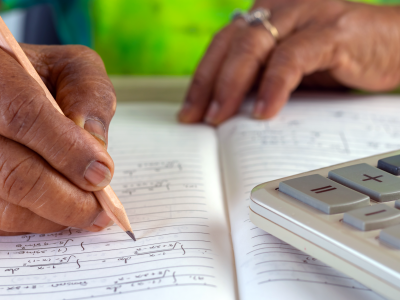Adult education

Adult education

Society is constantly changing. New technology has consequences for the labour market. Employees have to keep up to date and learn new skills. Adults can take a new education, build on their previous education or take primary or lower secondary school subjects to meet the new demands in the workplace. Many adults also take continuing and further education in parallel with their work. The fact that we learn over the course of our lives is called lifelong learning.
Preparatory education and upper secondary education for adults
Adults have the right to take preparatory education (FOV) if they have not completed primary and secondary education. Preparatory education is free for adults. Municipalities are responsible for providing this education.
Adults aged 25 or over have the right to upper secondary education if they have not taken such education before. You have to complete primary and lower secondary education in Norway or in another country before you can start upper secondary education. The county authority is responsible for the education. Upper secondary education for adults is free within the public school system. Many private schools are also available. They are not free.
Although schools are free, adults need money to live. Many of them can therefore get a grant and/or borrow money from the Norwegian State Educational Loan Fund while they go to school.


Recognition of education taken abroad
If you have qualifications from other countries, you can apply to have them recognised in Norway. This is done through the Norwegian Directorate for Higher Education and Skills (HK-dir). Health personnel can apply for authorisation from the Norwegian Directorate of Health.
Speak to an adviser at your school or to a refugee consultant for more information about your options.
Assessment of prior learning and work experience
We can gain skills both through education and through other experience. It may be difficult for those who come to Norway as adults to document their skills by submitting certificates etc. They may then have their prior learning and work experience assessed. This means that the individual’s skills are assessed against stipulated criteria. The assessment can result in shortening of courses of study, admission to study programmes, exemption from parts of a study programme, a new job or higher pay. Assessment is possible at primary and lower secondary level, in connection with a vocational education and at higher education level.
Talk together

- What do you think of the term lifelong learning?
- Talk together about how developments in society affect the individual’s need for new knowledge and skills.


Select the right answer
When are adults entitled to free primary and lower secondary education?
Select the right answer
Who is responsible for providing primary and lower secondary education including to adults?
Select the right answer
Adults aged 25 or over have the right to upper secondary education if they have not taken such education before. What kind of schooling do you need to have this right?
Select right or wrong
Read the statements. What is right? What is wrong?
Select right or wrong
Read the statements. What is right? What is wrong?
